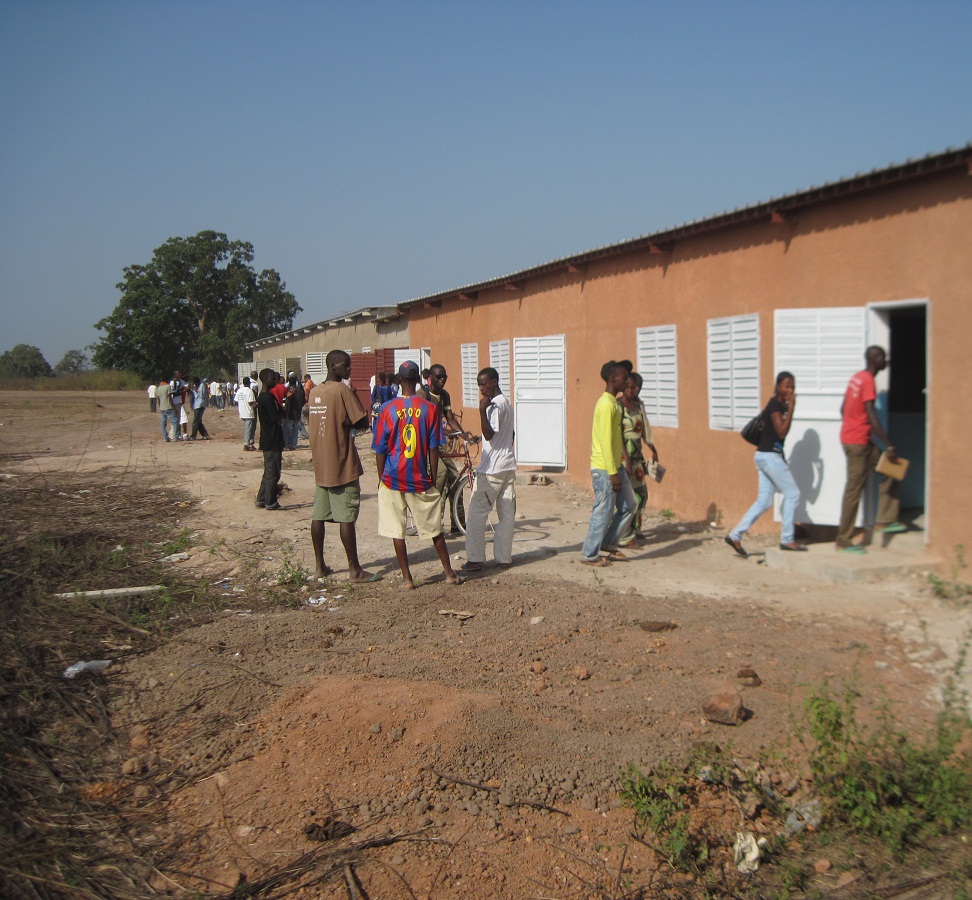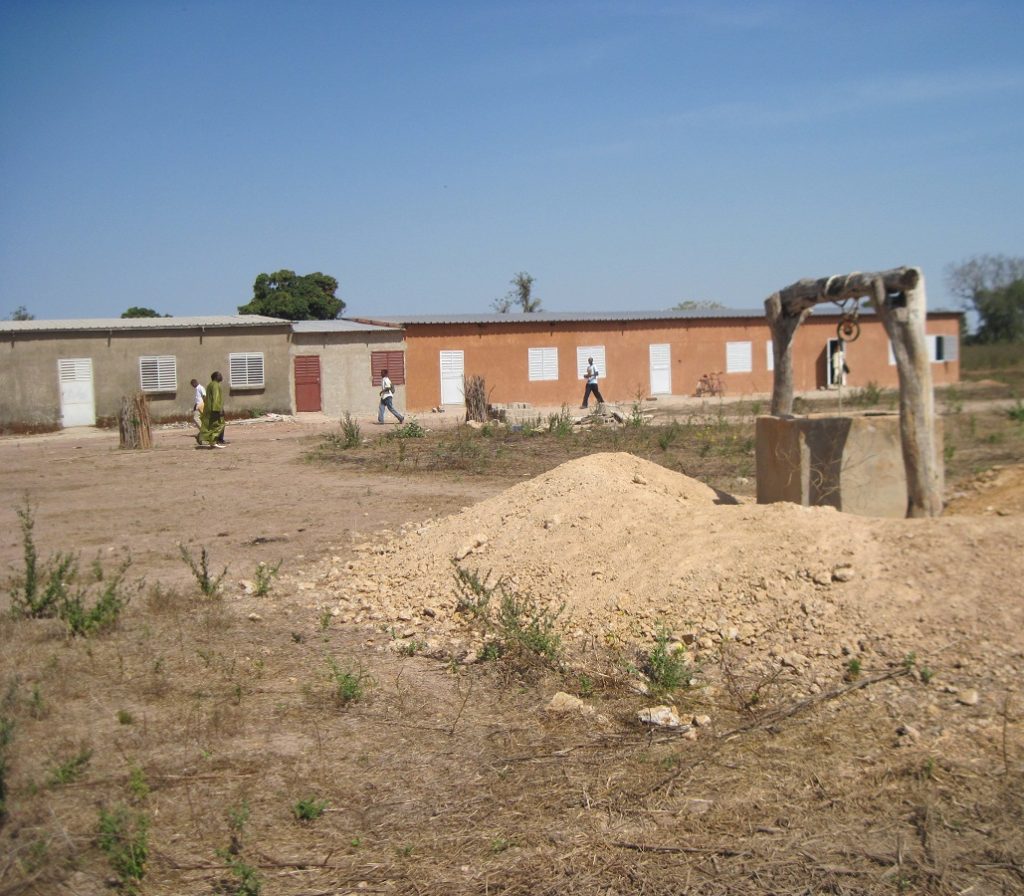Location
Kounkane, Velingara Department, Kolda Region, Senegal
Community Description
Kounkane is a rural road town located on Route National 6 in southern Senegal, with a population of approximately 9,300, the majority of whom belong to the Pulaar ethnic group. Most of the economy relies on agriculture, primarily of corn, rice, millet, peanuts, and cotton.
The town hosts a mayor’s office, a health post, five primary schools, one CEM (the equivalent of a middle school), and one lycee (the equivalent of a high school). It is also located 9 km from Diaobe, host to one of the largest open-air weekly markets in West Africa, and an important source of commerce in the region.
The Kounkane Lycee began operating in the 2009-2010 school year, and sits approximately 1.5 km south of the town center. It provides vital educational opportunities for students within Kounkane and those from outlying villages, as it is the only fully-functioning lycee between Velingara (30 km away) and Kolda (100 km away).
 Specifically, the lycee provides needed secondary education for local girls, whose parents are more reluctant to send their daughters away to larger cities to go to school. The school has 8 classrooms and currently educates 193 male students and 70 female students, and also has one simple hand-dug well.
Specifically, the lycee provides needed secondary education for local girls, whose parents are more reluctant to send their daughters away to larger cities to go to school. The school has 8 classrooms and currently educates 193 male students and 70 female students, and also has one simple hand-dug well.
Due to lack of local government and NGO funding for secondary education, the lycee lacks many necessary facilities, including electricity, running water, an administrative office, a fence, and most importantly, latrines. There are currently no toilet facilities at the lycee, leaving students and faculty no choice but to leave school if they need to use the bathroom. This not only curtails the time for students to learn in the classroom, but also creates a health hazard.
Project Description
This project will build two simple latrines behind the classrooms at the Kounkane lycee: one two-chamber latrine for students, and one single-chamber latrine for faculty.
The latrines for students will be housed in a 3.5 m by 2 m building with reinforced cement walls, which are aerated at the top. The two chambers (each 1.5 m by 1.5 m) will be separated by a cement wall. The building will have a zinc roof and zinc doors. PVC piping will connect the stalls to an underground septic tank approximately 2 m from the chambers. The tank will be 3 m deep, 1.5 m long, and 1.5 m wide, aerated by PVC pipe, and lined with rebar-reinforced cement.
 The latrine for faculty will be housed in a 2 m by 2 m building with reinforced concrete walls. Like the latrine for students, the building will have a zinc roof and zinc doors. PVC piping will connect the stall to an underground septic tank approximately 2 m from the chamber, which will be 3 m deep, 1.5 m long, and 1.5 m wide, aerated by PVC pipe, and lined with rebar reinforced cement.
The latrine for faculty will be housed in a 2 m by 2 m building with reinforced concrete walls. Like the latrine for students, the building will have a zinc roof and zinc doors. PVC piping will connect the stall to an underground septic tank approximately 2 m from the chamber, which will be 3 m deep, 1.5 m long, and 1.5 m wide, aerated by PVC pipe, and lined with rebar reinforced cement.
Appropriate Projects funds will be used to purchase cement, rebar, sand, gravel, zinc sheets, and wooden beams for the construction of the chambers and septic tanks, and will also pay for a local mason to construct the septic tanks.
The lycee will provide PVC piping to connect the chambers to and aerate the septic tanks, and turkish toilet seats, and will pay for labor for the construction of the chambers. The lycee will also provide buckets for storing water to flush the toilets.
Project Impact
The project will benefit 289 people, including 193 male students, 70 female students, 20 male faculty members, and 6 female faculty members.
Peace Corps Volunteer Directing Project
Geoffrey Burmeister
Comments
This is a vital project for the students, faculty, and community at large in that it will improve the learning environment and reduce illness caused by open defecation.
Dollar Amount of Project
$555.00
Donations Collected to Date
$555.00
Dollar Amount Needed
$0.00 – This project has been fully funded through the generosity of The Soneva SLOW LIFE Trust as a part of their Clean Water Projects initiative.
We encourage others to continue to donate using the Donate button below, and we will notify Peace Corps Volunteer Geoffrey Burmeister of your donation. Additional funds will be used to fund the next project by Geoffrey and/or those of other PCVs in the country of service.
![]() This project has been finished. To read about the conclusion of the project, CLICK HERE.
This project has been finished. To read about the conclusion of the project, CLICK HERE.